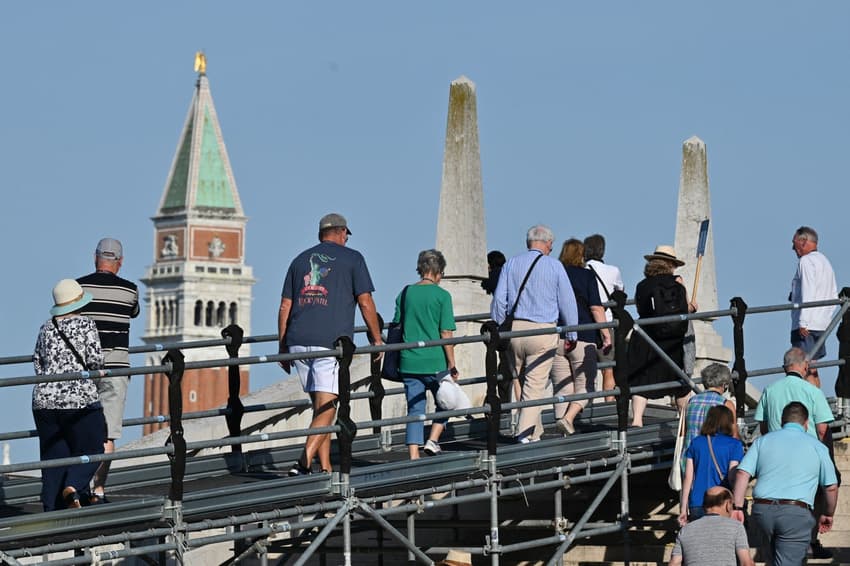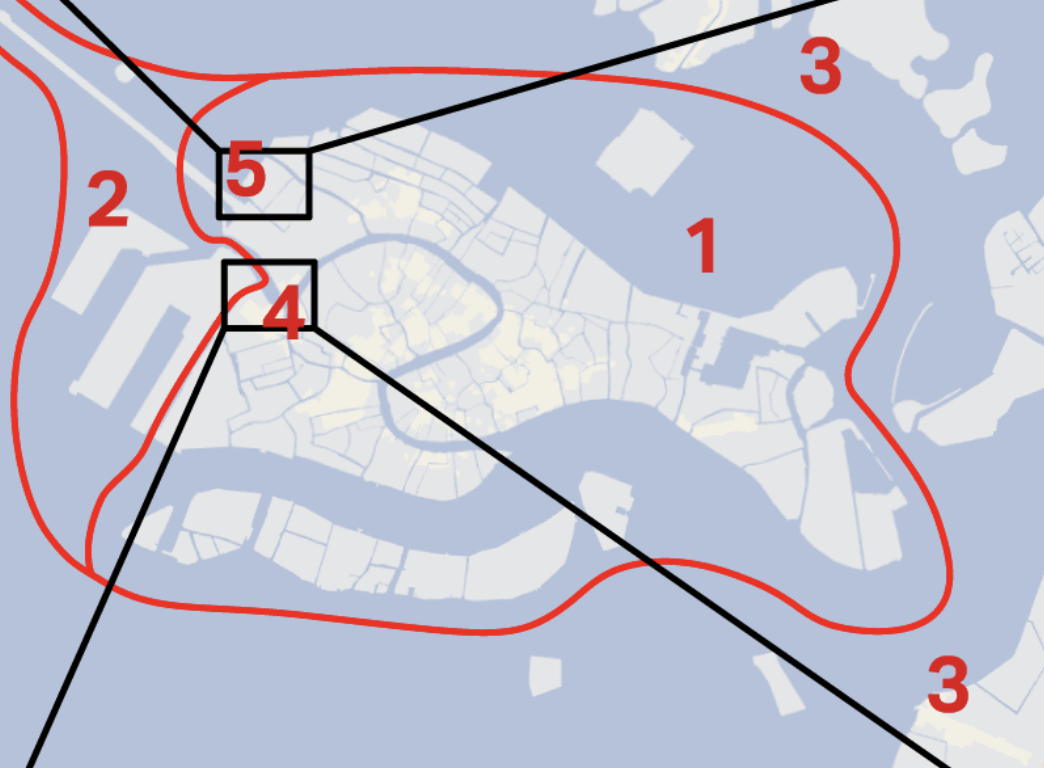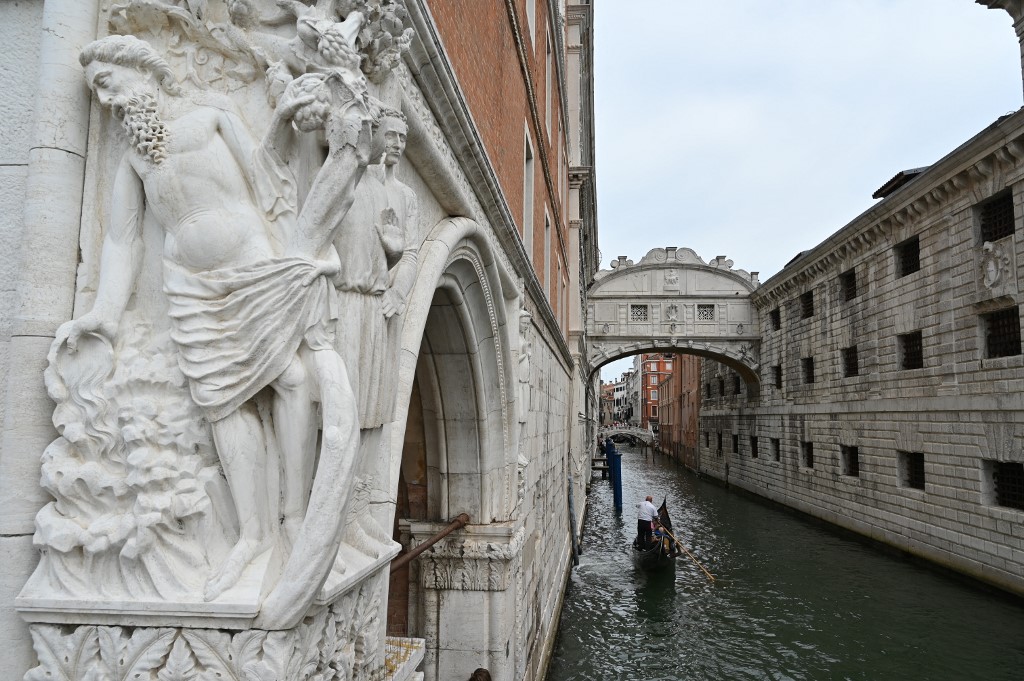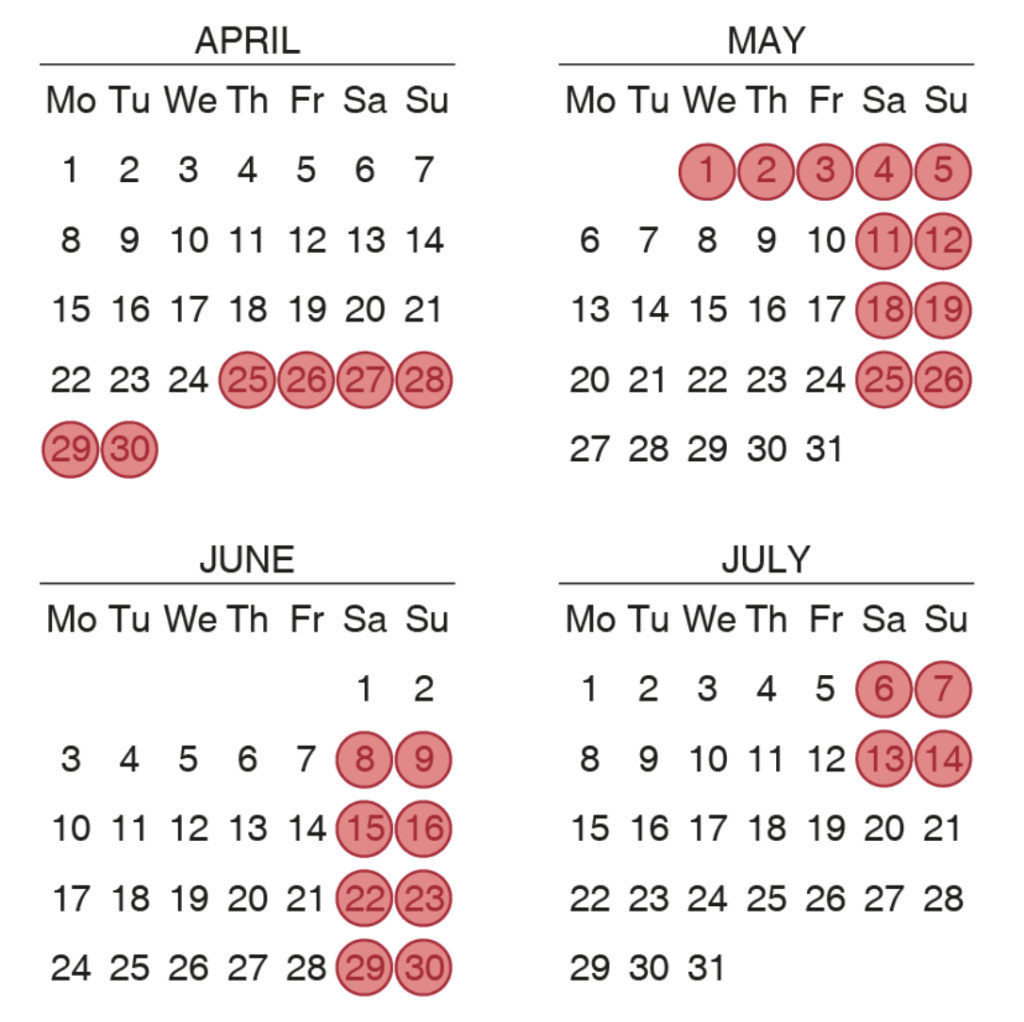EXPLAINED: How will Venice’s ‘tourist tax’ work?

Venice will introduce its controversial ticketing system for visitors on April 25th – but exactly who will the fee apply to and how will it work?
Following years of delay, Venice is set to introduce its controversial ‘tourist tax’ this April as part of wider plans to regulate crowds and lessen the impact of mass tourism on the city's fragile infrastructure.
According to local authorities, the long-planned ticketing system will be operative on a total of 29 days in 2024, beginning on Thursday, April 25th.
With just over a week to go until the entry fee first comes into force, this is what the city council has said so far about who it will apply to, who will be exempt, and how the system will be enforced.
Who does the entry fee apply to?
The Venice city council has said that all ‘day trippers’ aged 14 or over entering the city’s centro storico (historic centre) between 8.30am and 4pm will have to pay the fee.
Venice officials describe day trippers (or turisti giornalieri) as visitors who don’t stay “in one of the accommodation facilities located within the territory of the Venice municipality”.
Besides hotels, B&Bs, hostels, holiday lets and guest houses all fall into the ‘accommodation facilities’ category.
READ ALSO: ‘It’s not Disneyland’: What Venice residents really think of new ‘tourist tax’
Venice’s historic centre (area 1) includes all of the island, except the Santa Lucia railway station, Piazzale Roma and the Tronchetto terminal. People simply passing through these areas (areas 2, 4 and 5) without entering the centro storico won’t have to pay the fee.

A map of Venice with the area subject to the new entry fee indicated by the number 1. Screengrab from Venezia Unica
Who’s exempt?
Aside from guests staying at one of the city’s accommodation facilities, a number of other categories will be exempt from paying the fee.
Exemptions include:
- Day tripper under the age of 14
- Venice residents
- People born in the Venice municipality (or comune)
- People working or studying in Venice
- Veneto region residents
- Second-home owners and their household members
- Partners, parents or relatives up to the third degree of kinship of people residing in Venice
Barring day visitors aged under 14, Venice residents and people born in the city, all of the other above-mentioned categories will have to prove they’re entitled to the exemption by registering on a new online platform and producing the required documentation.
How much is the fee?
Day trippers will be charged a flat five-euro fee to access the city’s historical centre during the 2024 trial stage.
However, it’s likely that this set-up will change once the trial’s over and the ticketing system becomes fully operative.

A gondola glides down a canal in Venice in July 2023. Photo by ANDREA PATTARO / AFP
As laid out in some of the earliest project plans, the council should ultimately opt for a variable-fee format, with the fee’s amount changing based on the time of the year and the number of visitors expected in the city.
This means that the fee will be higher in peak tourist season and lower in low season.
How can I pay the charge?
Though early project plans included the option to pay the fee at various info points located in key areas of the city, day visitors can currently only pay the charge via an online booking platform (which is the same one used to claim a ticket exemption).
The platform will provide visitors with a QR code, which they will then have to show to ticket officers upon entering the city.
Checks will take place at some of the city’s main entry points, though local authorities haven't yet confirmed their locations.
Earlier this month, Venice Mayor Luigi Brugnaro said that the city would carry out "very soft controls" and "without queues" – at least in the earliest stages of the trial.
Current rules say anyone found without a ticket could be fined between 50 and 300 euros plus the price of the entry fee.
When will the new fee come into effect?
The new ticketing system will be operative for a total of 29 days in 2024.

An overview of when Venice's new entry fee will be charged. Screengrab from Venezia Unica
The fee will be in place from April 25th to May 5th and then on all of the remaining weekends in May and June, as well as the first two weekends of July.
There's no information yet about what will happen once this first trial phase is over.
Comments (3)
See Also
Following years of delay, Venice is set to introduce its controversial ‘tourist tax’ this April as part of wider plans to regulate crowds and lessen the impact of mass tourism on the city's fragile infrastructure.
According to local authorities, the long-planned ticketing system will be operative on a total of 29 days in 2024, beginning on Thursday, April 25th.
With just over a week to go until the entry fee first comes into force, this is what the city council has said so far about who it will apply to, who will be exempt, and how the system will be enforced.
Who does the entry fee apply to?
The Venice city council has said that all ‘day trippers’ aged 14 or over entering the city’s centro storico (historic centre) between 8.30am and 4pm will have to pay the fee.
Venice officials describe day trippers (or turisti giornalieri) as visitors who don’t stay “in one of the accommodation facilities located within the territory of the Venice municipality”.
Besides hotels, B&Bs, hostels, holiday lets and guest houses all fall into the ‘accommodation facilities’ category.
READ ALSO: ‘It’s not Disneyland’: What Venice residents really think of new ‘tourist tax’
Venice’s historic centre (area 1) includes all of the island, except the Santa Lucia railway station, Piazzale Roma and the Tronchetto terminal. People simply passing through these areas (areas 2, 4 and 5) without entering the centro storico won’t have to pay the fee.

Who’s exempt?
Aside from guests staying at one of the city’s accommodation facilities, a number of other categories will be exempt from paying the fee.
Exemptions include:
- Day tripper under the age of 14
- Venice residents
- People born in the Venice municipality (or comune)
- People working or studying in Venice
- Veneto region residents
- Second-home owners and their household members
- Partners, parents or relatives up to the third degree of kinship of people residing in Venice
Barring day visitors aged under 14, Venice residents and people born in the city, all of the other above-mentioned categories will have to prove they’re entitled to the exemption by registering on a new online platform and producing the required documentation.
How much is the fee?
Day trippers will be charged a flat five-euro fee to access the city’s historical centre during the 2024 trial stage.
However, it’s likely that this set-up will change once the trial’s over and the ticketing system becomes fully operative.

As laid out in some of the earliest project plans, the council should ultimately opt for a variable-fee format, with the fee’s amount changing based on the time of the year and the number of visitors expected in the city.
This means that the fee will be higher in peak tourist season and lower in low season.
How can I pay the charge?
Though early project plans included the option to pay the fee at various info points located in key areas of the city, day visitors can currently only pay the charge via an online booking platform (which is the same one used to claim a ticket exemption).
The platform will provide visitors with a QR code, which they will then have to show to ticket officers upon entering the city.
Checks will take place at some of the city’s main entry points, though local authorities haven't yet confirmed their locations.
Earlier this month, Venice Mayor Luigi Brugnaro said that the city would carry out "very soft controls" and "without queues" – at least in the earliest stages of the trial.
Current rules say anyone found without a ticket could be fined between 50 and 300 euros plus the price of the entry fee.
When will the new fee come into effect?
The new ticketing system will be operative for a total of 29 days in 2024.

The fee will be in place from April 25th to May 5th and then on all of the remaining weekends in May and June, as well as the first two weekends of July.
There's no information yet about what will happen once this first trial phase is over.
Join the conversation in our comments section below. Share your own views and experience and if you have a question or suggestion for our journalists then email us at [email protected].
Please keep comments civil, constructive and on topic – and make sure to read our terms of use before getting involved.
Please log in here to leave a comment.